Non è ancora XL, è comunque eccezionale vincere una maratona competitiva come Boston a 39 anni. E nel giorno del suo compleanno recupero alcuni consigli liberamente sparsi dal campione di origine eritrea e raccolti da Scott DOUGLAS “My career is 100 percent fulfilled now, so I can let all my secrets out” in 12’000 godibili battute @RW.
Long-Term Plan – voleva chiudere con NYC 2013, ma la cancellazione di NYC 2012 e l’attentato a Boston 2013 lo hanno fatto prolungare la carriera. “My goal for Boston this year was to win and to run under 2:09″ obiettivi raggiunti.
9-Day Cycles – now that he’s in his late 30s, Keflezighi has abandoned the traditional model of a training week for 9-day cycles. “My tempo runs, my intervals, my long runs are the key”. He generally does one of each in every 9-day cycle. “The rest depends on how I feel”. Sono comunque 220-240km per ciclo di carico che corrispondono a 180km a settimana e 760 al mese. “That’s less than would have been the case in 2004,” when he won the silver medal in the Olympic marathon, “but now I also do a lot of cross-training”.
Long Runs – Keflezighi likes his long runs long. “If you can get in several runs between 24 and 28 miles, with enough time for recovery, that’s going to make you strong as a nail. Combine that with the tempos, the intervals, and you’re ready”. Between January and Boston, Keflezighi says, he did three runs of 24 or 25 miles, and two runs of marathon distance or longer.
Tempo Runs and Intervals – Tempo run effort is “5:00 a mile or faster, depending on if I’m at sea level or elevation”. In other words, right around marathon race pace, for several miles. Before Boston his tempo runs included a 1:03 half marathon in training, and a 15-miler averaging 5:02 per mile (about 2:12 marathon pace). Keflezighi’s pre-Boston interval training centered on long repeats at half marathon pace or faster. One example: Three 3-mile repeats, with 4 minutes recovery between. Keflezighi does all of his hard workouts on roads. “I haven’t been on the track since 2009. I had my moments there and I don’t want to be there again. I’m getting ready for the roads”.
Basic Speed – Leading up to Boston, Keflezighi did striders, or accelerations of 100 to 150 meters, most days that didn’t include a hard workout or long run. These short runs entail running near full speed while staying relaxed and concentrating on good running form.
Cross-training – “I do my main run in the morning, but then for my second workout I often would rather be on the ElliptiGO than take the risk of a 30-minute run in the afternoon”. Keflezighi typically rides between 10 and 20 miles at a pretty good effort. “I wear my heart rate monitor just for fun. It’s usually around 117, 118,” compared at 118-122 for a typical easy run”.
Form, Mobility and Core Work – “Every time I run I do something else in conjunction with that afterward, once my muscles are awake”. He does post-run form daily unless he’s done a long run. The drills are the basic technique exercises that exaggerate elements of the running stride, such as skipping and running with high knees. His drill routine takes less than 10 minutes. Keflezighi does core strengthening exercises daily. His preference is to do them outside after his morning run. Here, too, he does basic exercises, such as various plank poses and push-ups. Keflezighi says he spends 10 to 20 minutes on core work. He favors active isolated stretching, but he also does some flexibility work without the stretching rope. He stretches before and after his morning run, and stretches after any subsequent aerobic workout that day. The pre-run stretching routine can take as long as 20 minutes; post-workout stretching lasts a little less than 10 minutes.
Altitude Training – For much of his professional career, Keflezighi was a member of the Mammoth Track Club, and lived in Mammoth Lakes, California, at an altitude of 7,800 feet. In 2013 he moved to San Diego. Before Boston this year, Keflezighi returned to Mammoth Lakes after running the NYC Half on March 16. He trained there until April 17, when he flew to Boston for the marathon. As he did when he lived in Mammoth, Keflezighi did most of his tempo runs and interval sessions in Bishop, which is at 4,100 feet of elevation and a 45-minute drive from Mammoth Lakes.
Tune-Up Races – Keflezighi ran two races—the Houston Half Marathon, which doubled as the U.S. championship winning in 1:01:23 on January 19 and the NYC Half on March 16—in his build-up to Boston. “This is just a tune-up race, don’t make a big deal out of it. I ran 1:02:53 Diet – Keflezighi weighed himself daily during his Boston build-up. “I have trouble maintaining my racing weight. Right now [while in marathon recovery mode] I can eat whatever I want, but I know that when I resume serious training I will need to lose weight I’ve gained”. Keflezighi weighed 122 pounds on the day he traveled to Boston for the marathon. “That’s probably similar to what I weighed in 2004, but now it takes a lot more diligence. In the U.S. there’s an excess of food. You think, ‘Two or three bites won’t hurt me’ and you end up finishing it. A lot of people think, ‘I run so much, I should eat whatever I want.’ That’s not true. It’s a fine line. I tell my wife it’s fine if the kids have cookies, but I don’t want to see it, because if I see it, I’m going to grab it. Don’t wait until you get hungry or you wind up eating too much”. To help prevent overeating, he has a glass of water just before dinner to make himself feel fuller. Keflezighi tries to eat five servings of fruit per day, and has a protein-rich meal, such as an omelet, after long or hard runs. Tapering – Keflezighi maintains his normal training until the latter part of the penultimate week before a marathon. His last significant workout is a 5- or 6-mile tempo run with a week to go. “Then it’s just maintenance to get to the start line healthy”. A Final Tip – If you implement the above principles so well that you win the Boston Marathon, Keflezighi advises warding off a cold by staying hydrated, taking vitamin C and carrying around a bottle of hand sanitizer. Per chi vuol scendere sotto l’ora e mezza in Mezza Meb farà da pacer nella sua città. Both the marathon and the half marathon take place on Sunday, June 1. The marathon starts at 6:15 a.m. and the half marathon at 6:45 a.m. Tanto per allenarsi con l’inglese fino in fondo.Post Correlati

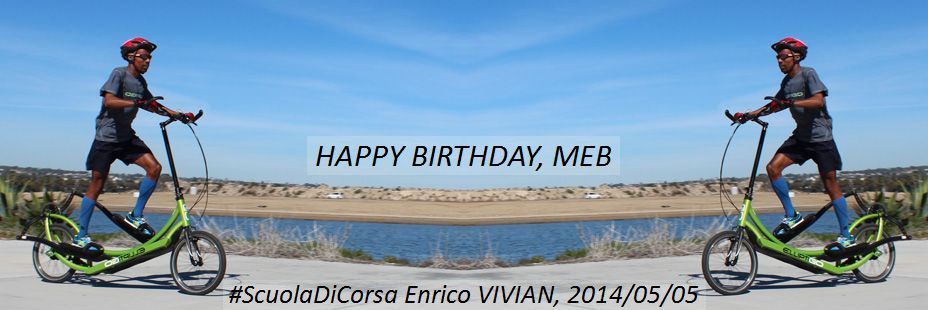
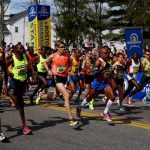
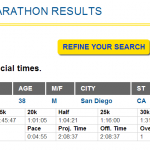
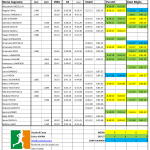
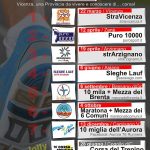
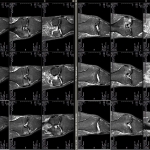

Leave A Comment